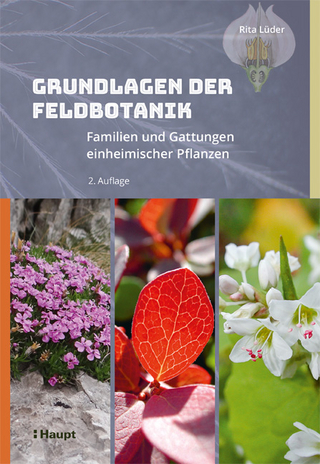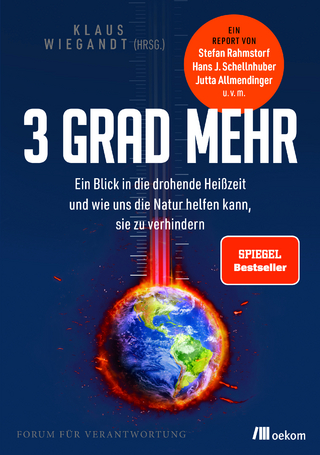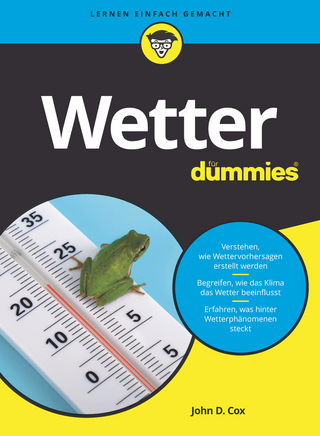
Food and Sustainability
Oxford University Press (Verlag)
978-0-19-881437-5 (ISBN)
The book explores the issues related to our growing demand for food from the perspectives of disciplines ranging from environmental and social sciences, to public health. It examines food as a point of convergence across these disciplines, illustrating the need for a transdisciplinary approach to understand common challenges and opportunities in food systems.
The issues discussed are exemplified in several case studies for each chapter, which provide a direct avenue for students to apply the principles and theories set out in each chapter to real-world problems. In addition, 'Food controversy' panels highlight how there is very often no one right answer to the problems being faced, and how different viewpoints and perspectives need to be weighed up alongside each other to come to workable resolutions.
Online resources:
Food sustainability is augmented by a range of online resources, which include:
For students:
· Hyperlinks to extended research readings
· Practice quizzes to support independent study
· Answers to in-text questions.
For instructors:
· Downloadable (PowerPoint) figures from the book
· Answer sheets to the end of chapter questions
· Suggested exam questions.
Paul Behrens is an Assistant Professor in Energy and Environmental Change at Leiden University. A physicist by training, Paul received his Masters in Physics and Astronomy from the University of Sheffield (UK) after conducting research at the Isaac Newton Group of Telescopes (Spain). His PhD is from the University of Auckland (New Zealand), where he developed remote sensing techniques for the harnessing of wind energy. Before joining Leiden University Paul worked at the Royal Society of New Zealand, providing expert scientific advice to the New Zealand Government on environmental sustainability and other topics. He has worked in industry, NGOs, and academia. His current work focuses on the environmental impact of human consumption, including energy, food, and water. Paul is passionate about science outreach and his recent research, published in the Proceedings of the National Academy of Sciences and Nature Energy, has appeared in The New York Times, the BBC, and Scientific American. David Ehrhardt is an Assistant Professor in International Development at Leiden University. With a D.Phil in Development Studies from the University of Oxford, David subsequently worked as a post-doctoral Research Officer in Oxford's Department of International Development. In his current research, he uses qualitative and quantitative research methods to understand the efficacy and development of 'hybrid' governance in Nigeria as well as comparatively. In the past, his research has explored ethnic and religious conflict and cooperation; the development of political authority beyond the state; and the ways in which inequality and governance interact in the formation of group identities and violent conflict. At Leiden, David coordinates a BSc programme in governance, economics, and development. Thijs Bosker is an Associate Professor in Environmental Science at Leiden University. He obtained a BSc and MSc in Plant Science at Wageningen University (the Netherlands), specializing in sustainable agriculture. Next, he worked for an NGO where he focused on reducing pesticide emissions to the environment. In 2005 he moved to Canada to complete a PhD in aquatic toxicology at the University of New Brunswick. He continued as a postdoctoral fellow at the Canadian Rivers Institute, became an Assistant Professor at the University of Connecticut (USA), before moving to Leiden University. In his current research he uses laboratory and field techniques to study impacts of contaminants on ecosystem health. He has worked on a variety of environmental issues, with a special focus on the combined impacts of contaminants and environmental stressors on reproduction and development of organisms. At Leiden University he coordinates the BSc programme Earth, Energy and Sustainability.
1: Introduction: can we feed the world sustainably?
PART I: Food and environment
2: Biodiversity: what are the impacts of food production on biodiversity?
3: Pollution: how are food systems related to environmental pollution?
4: Water: how does agriculture impact freshwater resources?
5: Soils: what are the impacts of agriculture on soils?
6: Climate change: how will food systems and the climate interact?
7: Energy: what is the role of energy in food production, and how must it change?
Part II: Food and society
8: Nutrition: how are diets linked to environmental impacts?
9: Food security: what are the challenges in providing everyone accessible, affordable, and healthy food?
10: Food aid: how can food aid effectively reduce food insecurity?
11: Consumption: how can we promote sustainable food consumption?
Part III: Food and governance
12: Food systems: how are food systems organised in a globalized economy?
13: Governance: how can food systems be governed to promote sustainability?
14: Collective action: how do collective action problems hinder the transition to sustainable food systems?
15: Summary: a view toward the future
| Erscheinungsdatum | 01.08.2019 |
|---|---|
| Verlagsort | Oxford |
| Sprache | englisch |
| Maße | 194 x 265 mm |
| Gewicht | 896 g |
| Themenwelt | Sachbuch/Ratgeber ► Natur / Technik ► Natur / Ökologie |
| Naturwissenschaften ► Biologie ► Ökologie / Naturschutz | |
| Technik ► Lebensmitteltechnologie | |
| ISBN-10 | 0-19-881437-2 / 0198814372 |
| ISBN-13 | 978-0-19-881437-5 / 9780198814375 |
| Zustand | Neuware |
| Haben Sie eine Frage zum Produkt? |
aus dem Bereich


